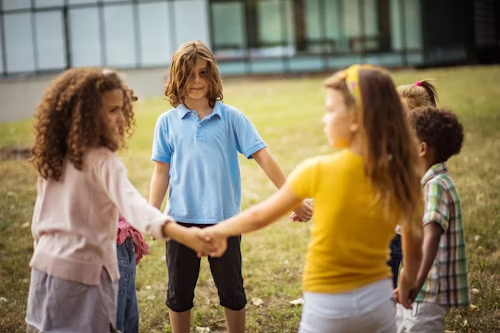The traditional focus on academic achievement as the primary outcome of schooling has expanded in recent years to include social-emotional development as an equally essential educational priority. This shift reflects growing recognition that success in life requires not just cognitive skills but also the ability to understand and manage emotions, establish positive relationships, make responsible decisions, and navigate social complexities. As education systems worldwide increasingly emphasize these capacities, teachers find themselves at the forefront of implementing approaches that develop the whole child rather than merely transmitting academic content.
Social-emotional learning (SEL) encompasses a wide range of interrelated competencies. Self-awareness involves recognizing one’s emotions, thoughts, and values, and understanding how they influence behavior. Self-management addresses the ability to regulate emotions and behaviors, manage stress, control impulses, and persevere through challenges. Social awareness focuses on empathizing with others from diverse backgrounds and recognizing social norms. Relationship skills enable establishing and maintaining healthy connections based on clear communication, cooperation, and conflict resolution. Responsible decision-making involves making constructive choices based on ethical standards, safety concerns, and social norms.
Numerous longitudinal studies have demonstrated that these social-emotional competencies predict important life outcomes, often more powerfully than academic metrics alone. A meta-analysis of 213 school-based SEL programs involving over 270,000 students found participants demonstrated significantly improved social and emotional skills, attitudes, behavior, and academic performance compared to control groups. Even more compelling, these programs showed positive effects on outcomes measured 6 months to 18 years later, including higher graduation rates, fewer criminal convictions, lower rates of substance abuse, and better mental health indicators.
Social-Emotional Learning
Neuroscientific research provides biological evidence for the interconnection between emotional processing and cognitive function. Brain imaging studies reveal that emotional states directly affect the neural systems involved in attention, memory formation, and higher-order thinking. The prefrontal cortex—critical for executive functions like planning, decision-making, and impulse control—maintains extensive connections with the limbic system responsible for emotional processing. These biological realities make separating cognitive and emotional development not merely philosophically questionable but scientifically inaccurate.
Implementation approaches for social-emotional learning vary widely in scope and methodology. Some schools adopt comprehensive programs with dedicated curriculum time, while others integrate SEL competencies into academic subjects through instructional practices and classroom management approaches. The most effective implementations typically combine multiple approaches, including explicit instruction in SEL skills, integration with academic content, supportive school policies, and family involvement. This comprehensive approach recognizes that social-emotional development occurs across contexts rather than exclusively during designated lessons.
The quality of student-teacher relationships profoundly influences social-emotional development. When students experience emotional connection with teachers characterized by warmth, respect, and appropriate boundaries, they show greater school engagement, better self-regulation, and more prosocial behavior. These relationships provide not only emotional support but also modeling of healthy social interaction. For students who have experienced relational trauma or insecure attachment patterns, positive relationships with teachers can offer reparative experiences that facilitate emotional healing and developmental progress.
Student-teacher Relationships
Classroom management approaches significantly impact social-emotional learning through the behavioral norms and conflict resolution models they establish. Traditional punishment-based systems often focus on compliance without developing internal regulation capacities. In contrast, restorative approaches emphasize understanding the impact of behavior on others, taking responsibility for harm, and collaboratively developing solutions. These practices develop perspective-taking, empathy, and conflict resolution skills applicable beyond the immediate disciplinary incident. Similarly, collaborative problem-solving approaches address underlying skills deficits rather than merely suppressing problematic behaviors.
Cultural responsiveness represents an essential dimension of effective social-emotional learning. SEL competencies manifest differently across cultural contexts, with varying emphasis on individualistic versus collectivist values, emotional expression norms, and relationship expectations. Culturally responsive SEL implementation acknowledges these differences while avoiding deficit perspectives toward any cultural orientation. This approach requires educator self-reflection about cultural assumptions embedded in SEL frameworks and adaptation of practices to honor diverse cultural strengths while developing competencies needed for success in various contexts.
Equity considerations emerge prominently in social-emotional learning implementation. Students from marginalized groups often face additional stressors including discrimination, economic insecurity, and systemic barriers—increasing their need for strong social-emotional skills while simultaneously creating obstacles to developing these competencies. Equity-focused approaches recognize these differential impacts, provide targeted supports where needed, and address system-level factors rather than implicitly blaming individuals for challenges stemming from structural inequities. This perspective shifts from seeing SEL as merely individual skill development to understanding it within broader social justice contexts.
Assessment of social-emotional competencies presents significant challenges. Unlike academic content with relatively straightforward right and wrong answers, social-emotional skills involve complex, context-dependent behaviors that resist simple measurement. Self-report measures may reflect self-perception rather than actual competence, while observational assessments require substantial time and training to implement reliably. The most comprehensive approaches combine multiple assessment strategies while recognizing the inherent limitations of attempting to quantify complex human capacities. This balanced perspective uses assessment to inform support rather than make high-stakes judgments.
Adult social-emotional competence significantly influences student development in these areas. Teachers who demonstrate strong self-awareness, emotional regulation, and relationship skills create classroom environments more conducive to student social-emotional growth. Professional development that addresses teacher well-being, stress management, and emotional intelligence enhances not only teacher effectiveness but also sustainability in a profession with high burnout rates. This recognition has led to increased emphasis on educator social-emotional competence as a precondition for effectively fostering these capacities in students.
Implementation challenges for social-emotional learning include competing priorities in time-constrained school schedules, varying levels of educator preparation for addressing emotional content, and cultural debates about the appropriate role of schools in non-academic development. Successful implementations address these challenges through clear articulation of SEL’s connection to academic success, comprehensive professional development, transparent communication with families, and thoughtful consideration of cultural and community contexts. These strategic approaches recognize that sustainable SEL implementation requires addressing both technical and adaptive challenges within educational systems.
Conclusion
As education continues evolving beyond narrow academic focus toward more holistic development, social-emotional learning represents not a passing trend but a fundamental reconceptualization of educational purpose. The growing evidence base linking these competencies to lifelong outcomes across domains—from academic achievement and career success to mental health and relationship quality—makes their development too important to leave to chance. By intentionally cultivating these essential human capacities alongside academic knowledge, education systems move closer to their fundamental purpose: preparing young people not merely for tests but for meaningful, productive, and fulfilling lives in increasingly complex social worlds.











